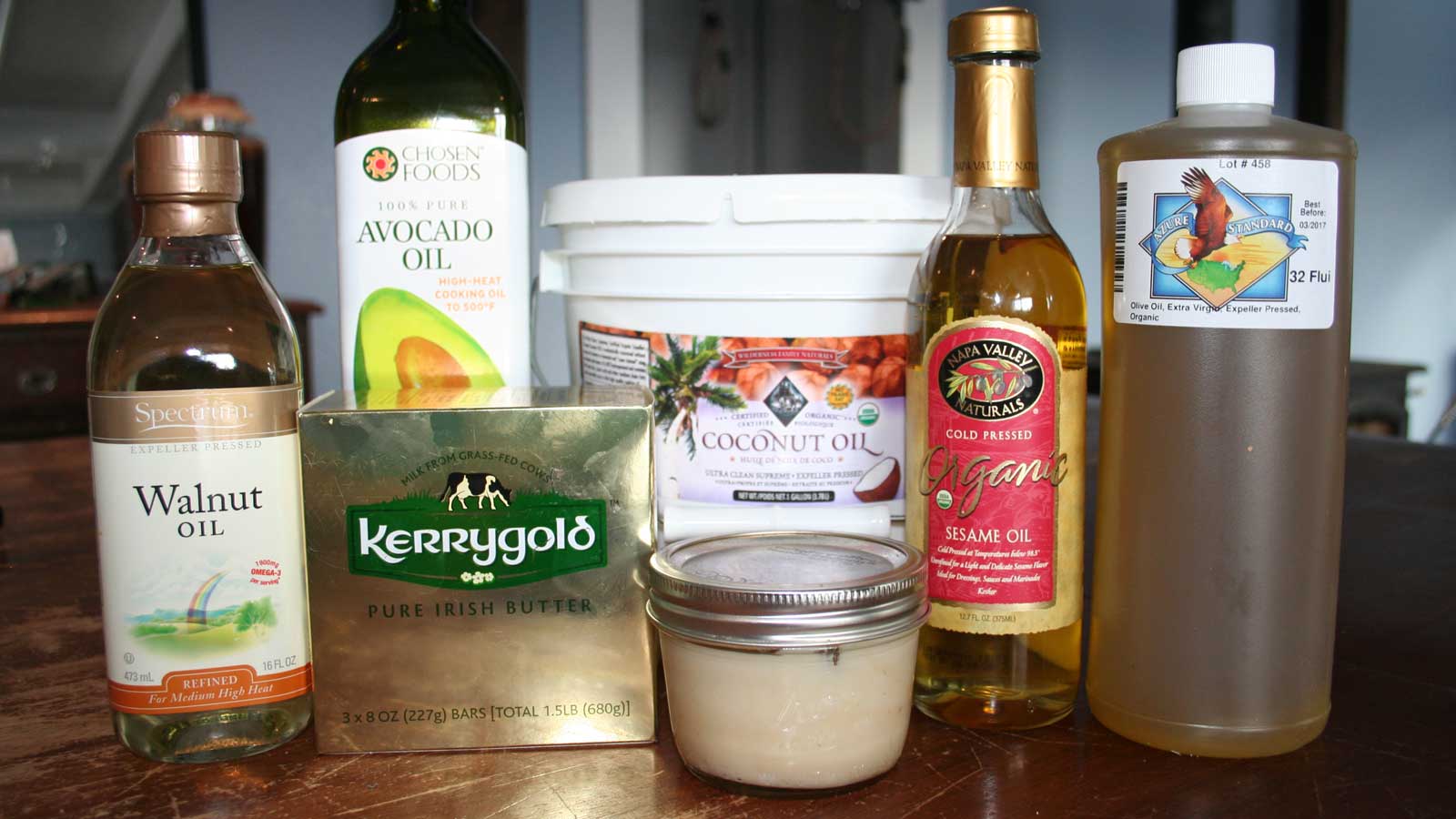
s I’ve said before, making the change to a “traditional diet” can appear ambitiously impossible. But my advice is always to take it one-step-at-a-time. The size of the step is up to you! The ultimate goal is what’s important to remember, and that is living Full of Days, right? Well, if we’re stressed or worried about the changes we are or aren’t making, then Full of Days is non-existent.
The little steps are pretty tangible. When you run out of a product (whether it’s spices, condiments, bulk items like oats or rice, shampoo or laundry detergent), replace it with a better choice. Even if that better choice isn’t organic! Just make it a better choice!
The one caveat, however, would be with your cooking oils. There is just too much bad that can come from the wrong oils. The silver lining is that bad oils come with a cheap price tag! So it shouldn’t be too hard to toss a bottle that’s still half full (half empty?). The flip side is that the sticker shock on good oils can be hard to swallow.
It’s important to know how the oils we cook with impact on our health. Many highly processed and refined oils are not shelf stable and can easily become rancid (on your pantry shelf or when cooking at too high a heat). I would venture to say many of us have been cooking for years without the proper knowledge of the smoke points of oils.
“Factory fats such as hydrogenated/partially hydrogenated oils and processed liquid oils like soy, corn, safflower and canola are modern fats introduced to the human diet only in the last few decades and can cause cancer, heart disease, immune system dysfunction, sterility, learning disabilities, growth problems and osteoporosis. They must be vigilantly avoided to achieve maximum health and vitality.” Sarah Pope
The following oils are on the “safe list” for oils. They are oils that have been used and have nourished healthy populations around the globe for thousands of years:
For Cooking – Grass Fed/Organic sources are best:
- Butter/Ghee
- Tallow and suet from beef and lamb
- Lard from pigs
- Chicken, goose and duck fat
- Coconut, palm and palm kernel oils
For Salads – Not meant for heating:
- Extra virgin olive oil (also okay for cooking, but not above 350℉)
- Expeller-expressed sesame and peanut oils
- Expeller-expressed flax oil (in small amounts)
For Fat-Soluble Vitamins
- Fish liver oils such as cod liver oil (preferable to fish oils, which do not provide fat-soluble vitamins, can cause an overdose of unsaturated fatty acids and usually come from farmed fish.) (Source)
The following fats have been highly processed and should be avoided as much as possible:
- All hydrogenated and partially hydrogenated oils (present in many packaged foods as well…read your labels!)
- Industrially processed liquid oils such as soy, corn, safflower, cottonseed and canola
- Fats and oils (especially polyunsaturated vegetable oils) heated to very high temperatures in processing and frying. (Source)
It’s best to ditch these oils ASAP and not use them up before replacing with a healthy oil (remember, they probably didn’t cost you much!). When you’re ready, get to the grocery store and check out all the healthy oils available to you and consider replacing the “no-no” oils with a few of the healthy cooking oils mentioned above.
Please be aware that even some of the approved oils above have less than stellar products on the market. Butter is best when it comes from grass-fed cows. All animal fats ought to be from animals not treated with any steroids, antibiotics or growth hormones as these are stored in the fat. Tropical oils are best cold-pressed/expeller-pressed, unbleached and deodorized using something like diotomaceous earth (never chemical solvents).
If it’s in your means, Azure Standard offers some great bulk pricing on oils. In the long run, this will help cut the costs of these more expensive (but wildly healthier) oils. For even deeper savings, check out Azure’s membership program called Azure Advantage. Our membership has more than paid for itself through the discounts and freebies the membership offers.
And in case you needed more motivation, look at this quote by The Healthy Home Economist, “Getting your fats right is the only way I have ever found for people to reduce and eventually eliminate their sugar addiction. Any other approach is temporary at best and relies solely on will power rather than the body being nourished and not needing the sugar (remember that the body converts sugar to saturated fat, so if your diet is low in saturated fat, you will be plagued with sugar cravings that cannot be controlled).”



Love seeing and hearing about all the motivation here!
Thanks Tracey! We’re all in this together, right?
Also what oils do you use for baking?
I always use butter or coconut oil for baking. The oils I ALWAYS have on hand are a gallon of coconut oil, olive oil, butter and avocado oil (for cooking something that will go above 350 degrees, like roasting veggies in the oven).
What would YOU use for frying fish? We eat a lot of fish in this house and have historically used Canola for frying. We DO love our butter so maybe that’s an option. Thank you for inspiring me to make healthier meals for my family!
It depends on what you mean by “frying”. Are you just shallow frying? Butter or olive oil (or both together) would be so yummy for that! For deep fat frying I usually opt for coconut oil (refined because it costs less than the unrefined and doesn’t have the coconut taste). It’s SO IMPORTANT not to let the oil go above 350 degrees or even the good oils can form free radicals. Use an oil or candy thermometer and keep it around 325, just in case it starts creeping higher you have a buffer zone!
Good to know thanks! What oil is in the Azure bottle there? I can’t zoom in
olive oil!
Thoughts on grape seed oil? Brand?
Grapeseed oil is VERY high in polyunsaturated fat and omega-6 fatty acids (which we usually get too many of in our diet) and low in saturated fat. I’d steer clear of it!